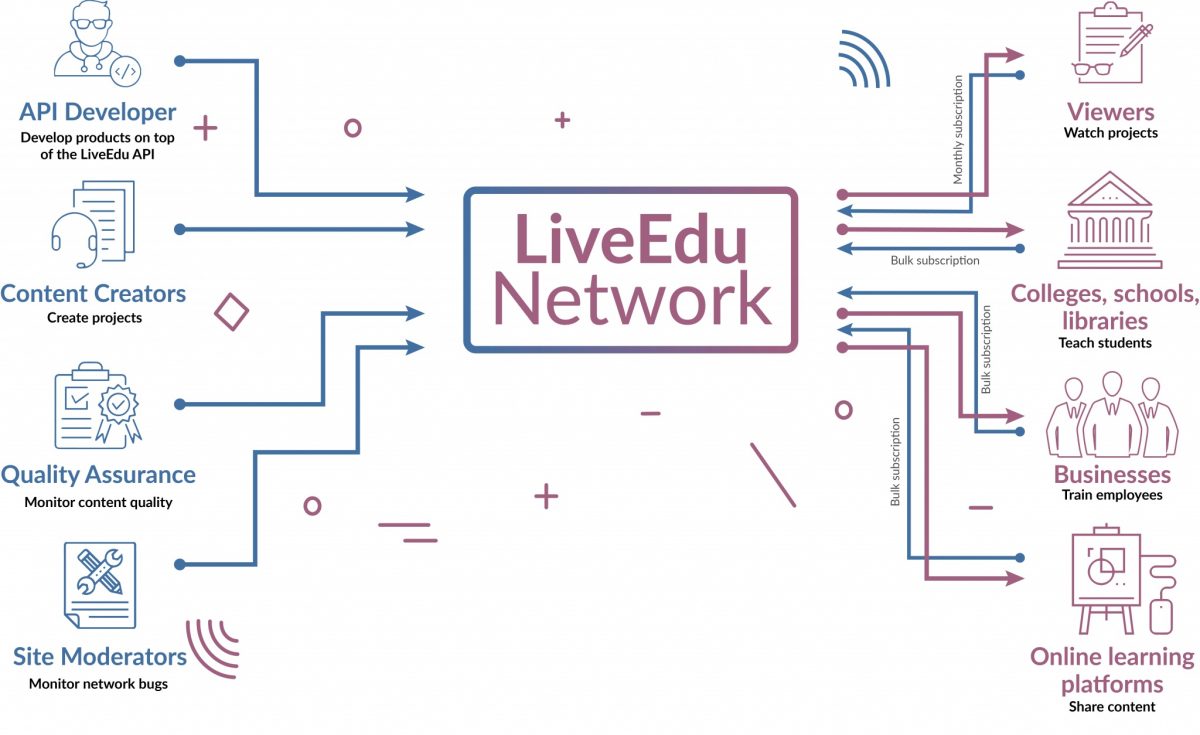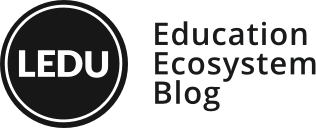 As explained in our educational article “Differences Between Protocol Blockchain and App Blockchain Companies”, LiveEdu is by default, like 99% of companies running an ICO an app blockchain company. We are building our blockchain smart contract technology on top of an existing blockchain, namely Ethereum, using ERC20 tokenization mechanics. LiveEdu is using similar blockchain smart contract mechanics to what Steemit uses. We are building for the online education market what Steemit built for online publishing. We use EDU blockchain smart contracts in our network for payments and rewards. In about three years, after we have fully built out our external ecosystem, we will build our own protocol blockchain and migrate from the ethereum protocol.
As explained in our educational article “Differences Between Protocol Blockchain and App Blockchain Companies”, LiveEdu is by default, like 99% of companies running an ICO an app blockchain company. We are building our blockchain smart contract technology on top of an existing blockchain, namely Ethereum, using ERC20 tokenization mechanics. LiveEdu is using similar blockchain smart contract mechanics to what Steemit uses. We are building for the online education market what Steemit built for online publishing. We use EDU blockchain smart contracts in our network for payments and rewards. In about three years, after we have fully built out our external ecosystem, we will build our own protocol blockchain and migrate from the ethereum protocol.
The LiveEdu ecosystem consists of two networks, namely the internal ecosystem and the external ecosystem. The internal ecosystem participants are project creators (content creators), viewers (learners), community moderators, project quality moderators, and LiveEdu API application developers. The external ecosystem participants are businesses, schools, libraries, colleges and other online education companies.
The LiveEdu network is a classic model that is highly suitable for blockchain smart contract tokenization. The blockchain will decentralize key content, product and project development decisions that are made on both the supply and demand side. Tokenization will help LiveEdu build its network faster on both sides:
Supply side
- LiveEdu does not create content itself, but provides a peer-to-peer project network that connects streamers to viewers from the whole world.
- We plan to use tokenization as a key approach to solve our chicken-and-egg marketplace problem by incentivizing early project creators with a mix of EDU tokens and cash.
- Tokenization will enable LiveEdu to bind content creators because, they will have a shared interest in the long-term value appreciation of EDU tokens.
- We plan to use investors in the ICO, who have subject matter domain expertise, to create projects. Therefore we see the ICO as a way to build deep relationships with potential project creators.
Demand side
- The success of LiveEdu will depend on creating content that viewers want to watch. So far, streamers have decided which projects to create, frequently deviating from what viewers want to watch. Tokenization will empower viewers as token holders to submit projects or vote on projects. This will transform LiveEdu from a supply-side-driven marketplace to a demand one.
- Tokenization will enable LiveEdu to launch a native payment currency that is deeply embedded into the product and used for all payment transactions.
- Tokenization will enable LiveEdu to reward site supporters, moderators and API ecosystem developers, using EDU tokens without spending any fiat upfront, which reduces business risk.







